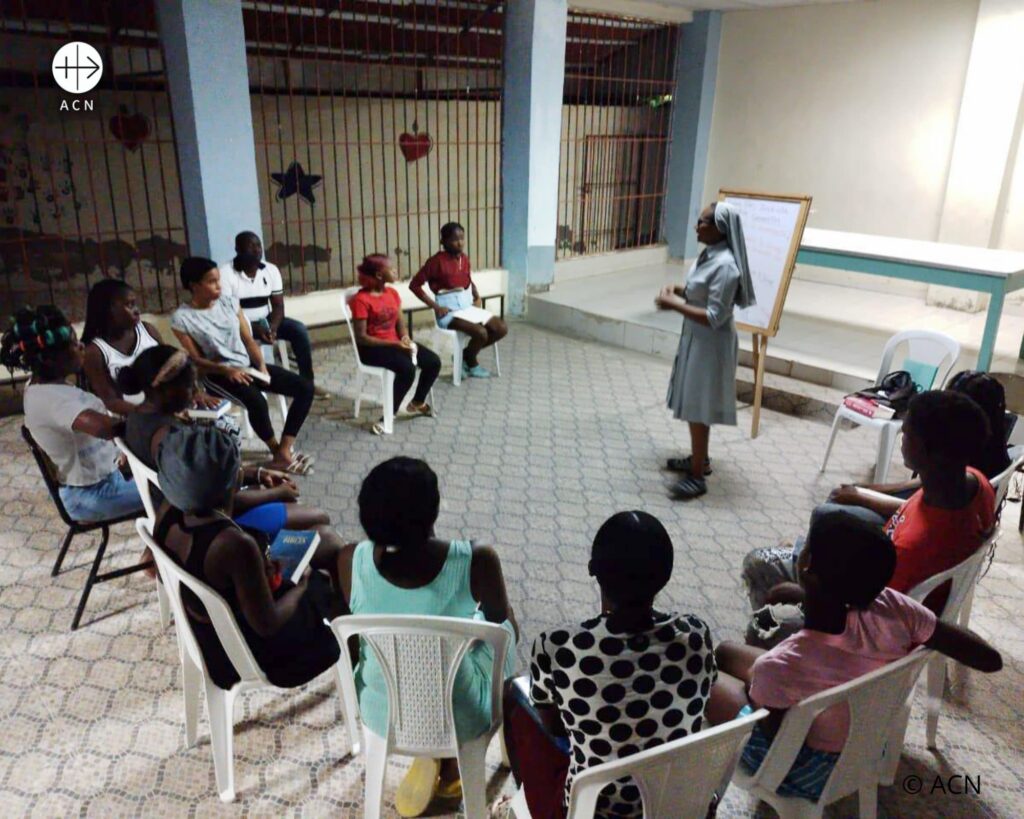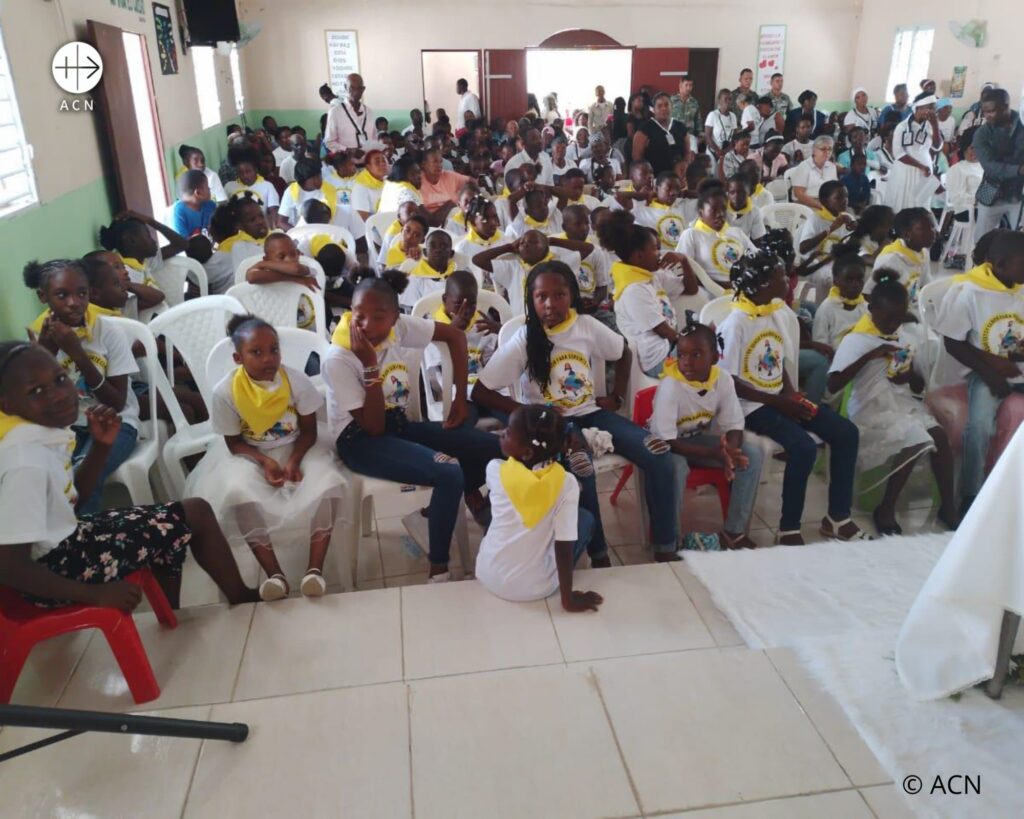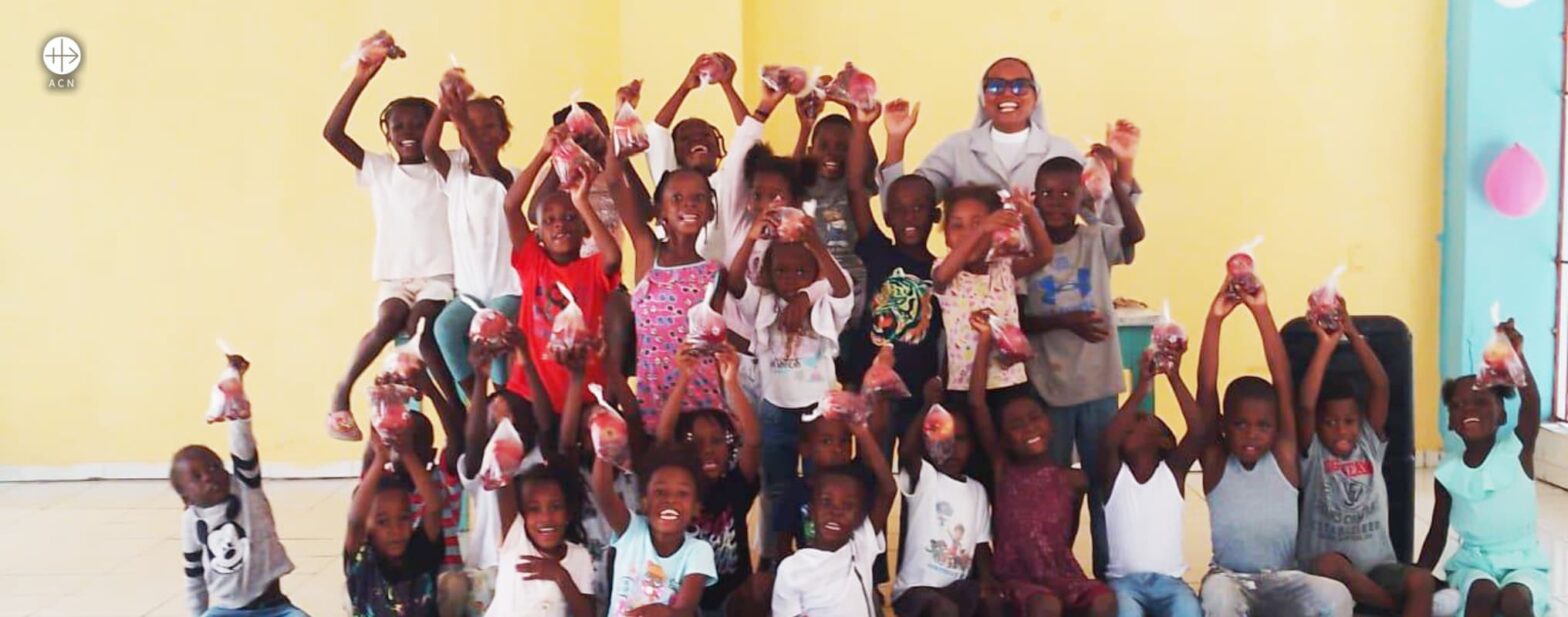Subsistence aid for three religious sisters in a poor parish
Most people tend to think of the Dominican Republic as a holiday paradise, with idyllic sandy beaches. And many are astonished to discover that there is in fact great poverty there.
The west of the country, bordering on its crisis-ridden neighbour Haiti, is an almost forgotten region, facing major economic, social, and pastoral challenges. The poverty is particularly extreme in the so-called Bateyes. These were originally temporary hut settlements, built in the first half of the 20th century for use by seasonal workers on the sugar plantations. Today, throughout the country, there are around 200,000 people living permanently in these settlements, which have neither electricity nor running water.

One such place is Batey 5 in the Diocese of Barahona, in the southwest corner of the country. Since 2017, three religious sisters of the congregation of the Missionaries of the Immaculate Virgin Mary and Saint Catherine of Siena – known locally as Lauritas – have been working in the parish of Saint Martin de Porres. Many of the parishioners here still work in the sugar cane fields—a harsh life involving long hours in the oppressive heat and earning them less than 10 dollars a day. Others work in the sugar factories, and here, too, the conditions are hard and the wages low. The workers, many of whom are Haitians or descendants of Haitian migrant workers, must fight a daily battle for subsistence with almost no opportunities for further development.

The Lauritas care for the children and young people, play an active part in the pastoral life of the parish, help with the training of the catechists, and are there to support and advise the people. They also run a senior centre for 18 elderly people, four of whom have no family. When they have to go to hospital, one of the sisters accompanies them and registers as a family member/next of kin, to ensure they receive better treatment.
The sisters themselves live in extremely modest conditions, which include frequent and long-lasting power cuts. Often, they can be without power for up to eight or ten hours and must depend on candles or oil lamps at night.
The bishop is doing his best to support the sisters, but in this desperately poor region, the Church herself has only very limited resources. This is why we would like to help these three religious sisters, who are working with such self-effacing love and devotion, with basic subsistence aid in the amount of $4,050.







